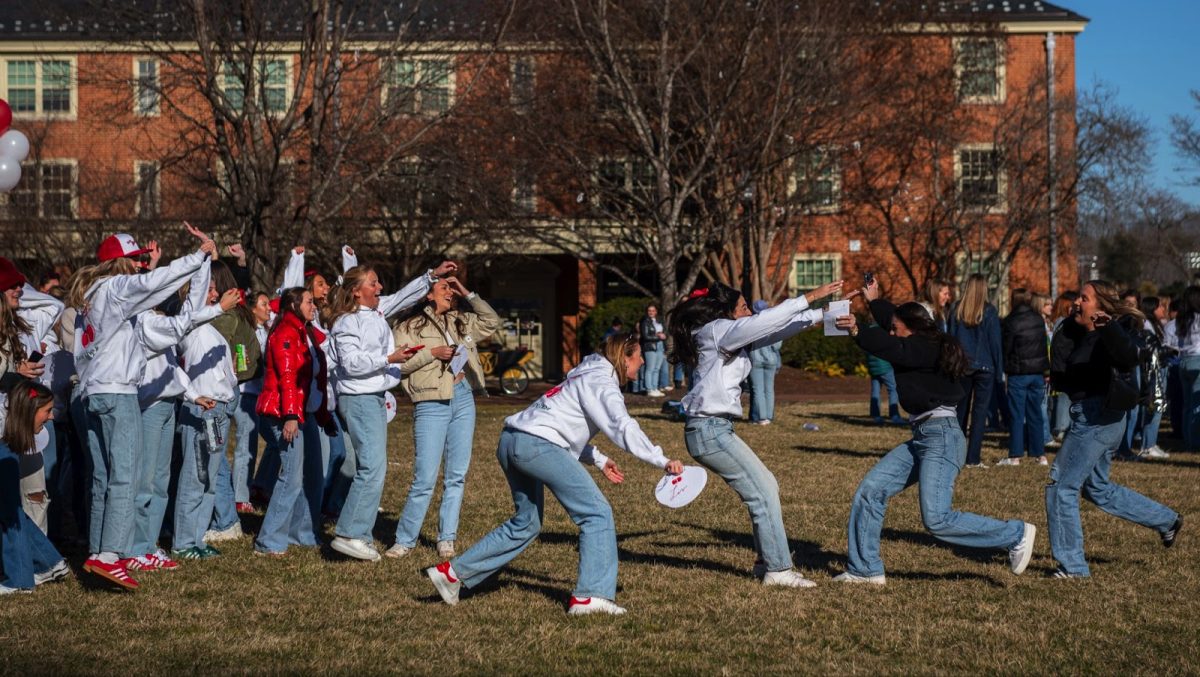This past weekend, ESPN released its most recent documentary, Fantastic Lies, in its critically acclaimed series 30 for 30.
The documentary looked back on the sexual assault charges levied against three members of the 2006 Duke men’s lacrosse team, and the national uproar that ensued.
Due to the allegations Duke’s lacrosse season was cancelled and the coach was forced to resign.
The three players were ultimately found innocent of all charges, as prosecutor Michael Nifong was discovered to be withholding vital information in the case, but their lives were negatively changed forever.
The national media, Duke University, and the nation as a whole were quick to convict not only the three accused players, but also the entire lacrosse team. This documentary, as well as the Netflix original Making a Murderer, have shined a light on our societal tendency to condemn individuals prior to them receiving a fair trial.
It is extremely important that as a society we create an atmosphere which is supportive and encouraging towards those who have been affected by a crime, but it is also important that the national media, and people on social media, allow the justice system to do its job.
There is almost no good that can come out of a news outlet, or 18 year old on Twitter, playing the roles of prosecutor, judge and jury. This rush to judgement not only affects those accused of crimes, but also those individuals who have had a crime committed against them, but are afraid to come forward.
In today’s social media culture, we are all so quick to convict politicians, celebrities, and every day people in the court of public opinion.
Our access to social media has created an environment where people desire entertainment in their news, creating a culture in which facts have become less important than being the first person to retweet a scandalous headline has.
The judicial system established in this country states that an individual is innocent until proven guilty, and yet it is truly alarming how quickly, we as citizens, have shifted to a guilty until proven innocent outlook on social media.
In an age where news is instantly at our fingertips we have seemingly lost all capabilities as a society to take a step back and allow justice run its course.
While the vast majority of criminal allegations are true, it is unethical, unfair and potentially life altering for us to immediately take to Twitter or Facebook to condemn every individual who has ever faced criminal allegations.
Our judicial system is by no means perfect, it unquestionably provides an advantage to those who can afford better legal representation, but it is in place for a reason.
Without the judicial system we have, without the right to a fair trial, this country would fall apart.
So before you send that next tweet think about all the people and lives at stake, and wait until justice has been served.











Mike • Apr 1, 2016 at 10:45 pm
Perhaps it is just my article selection, but it seems the more sense an article makes, the less comments it gets…
This rise of ‘social media’ justice and intolerance for anything other than ‘pre-approved’ perspectives must be aggressively stopped. Wisdom: It’s leading down a path from which we cannot return without high ‘cost’.
Why it must be stopped:
-(as mentioned in article) People act like judge, jury, executioner merely based on allegations, accusers, claims, etc. alone
-It doesn’t allow for second chances at life (follows everywhere)
-It ignores facts and caters to perceptions
-Leads to violence, harassment, etc.
-Leads to the reduce freedom, and silences differences of opinions
-It fosters intolerance/conformity…yes, even ‘dumb’ and hurtful remarks/ideas can lead to good things
How to stop it (Yes, there are some contradictory suggestions based on above):
-Take away online anonymity (i.e. responsibility/accountability goes both ways)
-Remove all [laws] acknowledgment that implies special considerations toward race, beliefs, groups, etc.
-Hold the communication sources accountable
-Fiercely enforce tolerance (if two beliefs conflict, simply do nothing…the threshold for action is when a law is broken, violence ensues, etc.)
-Educate on the real negative impacts of ‘social justice’ (i.e. mob justice)
-Set legal precedence: go after, as much as possible, every single entity that engages in ‘social justice’ that directly impacts the person/concept in question
-Stop reporting on what’s ‘trending’…this merely feeds something that would otherwise simply disappear
-Apply vigilante laws…how is ‘social justice’ any different…get them ALL
-Employ active ‘clean slate’ programs
—-This concept needs explaining… Once your name and whatever you did/said is out there, well, it’s forever out there. With the exception of official authority/judicial reports, routinely execute a ‘clean state’ program which scourers everything, and removes all mentioning. Yes, as soon as the info is gone, it’ll pop right back up…this is why the program is routinely conducted.
Now for the caveat… Yes, the above is can be viewed as contradictory and ‘dumb’ (as I definitely didn’t think everything thoroughly through). Well, guess what geniuses…that’s the point…even dumb things can spark better/creative ideas. Just roll with it…the underlying point it: STOP SOCIAL JUSTICE.